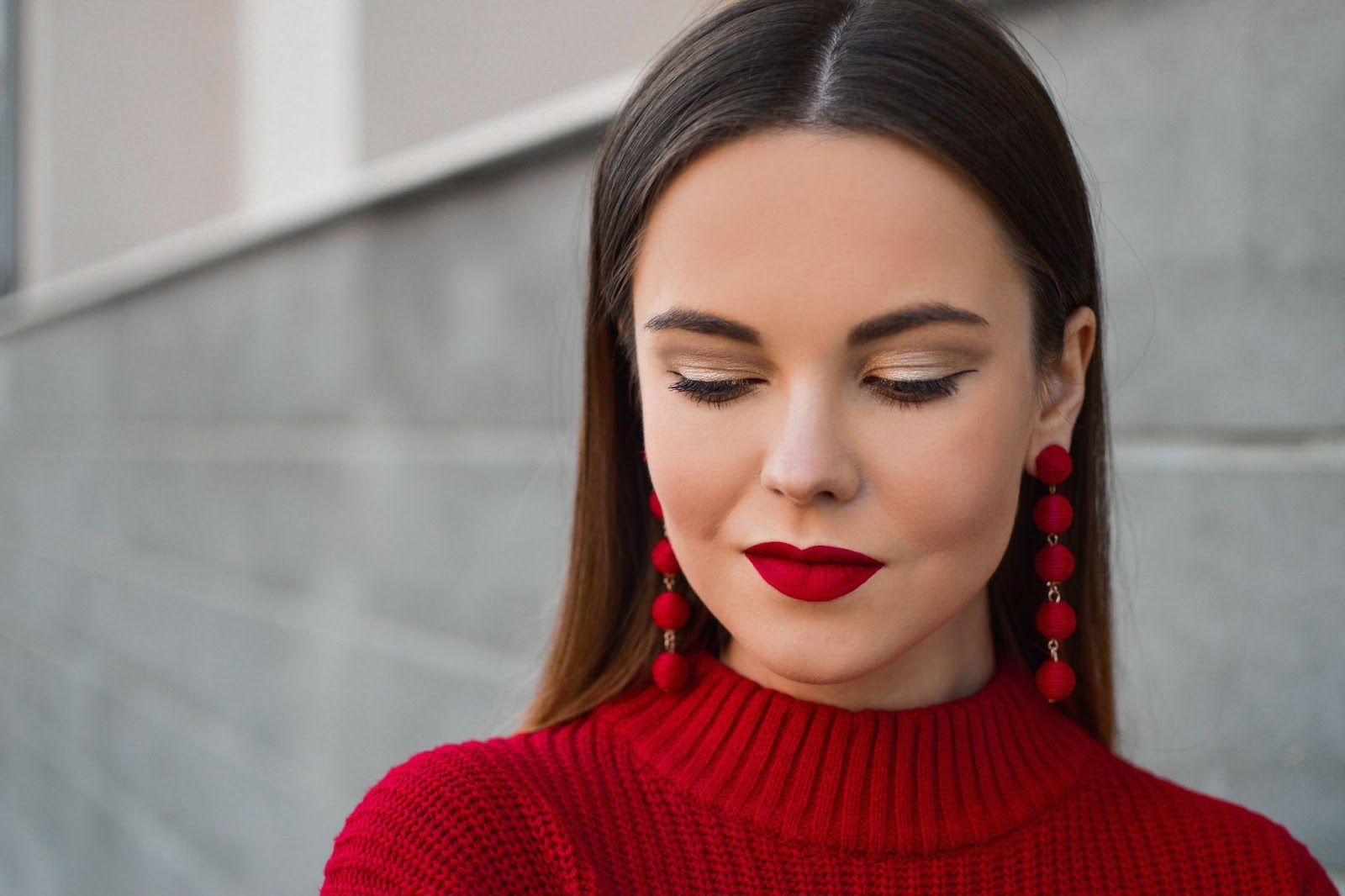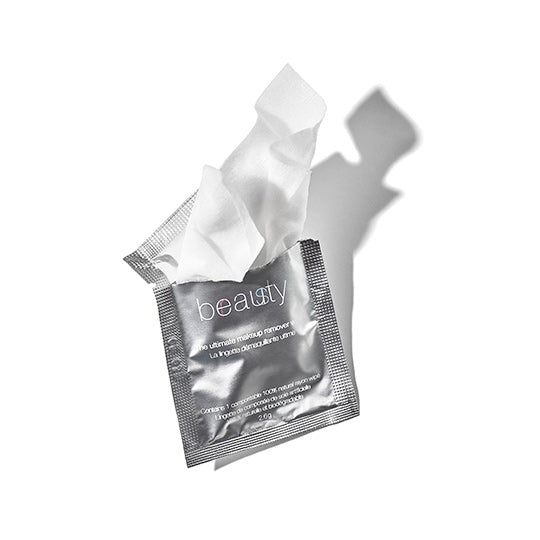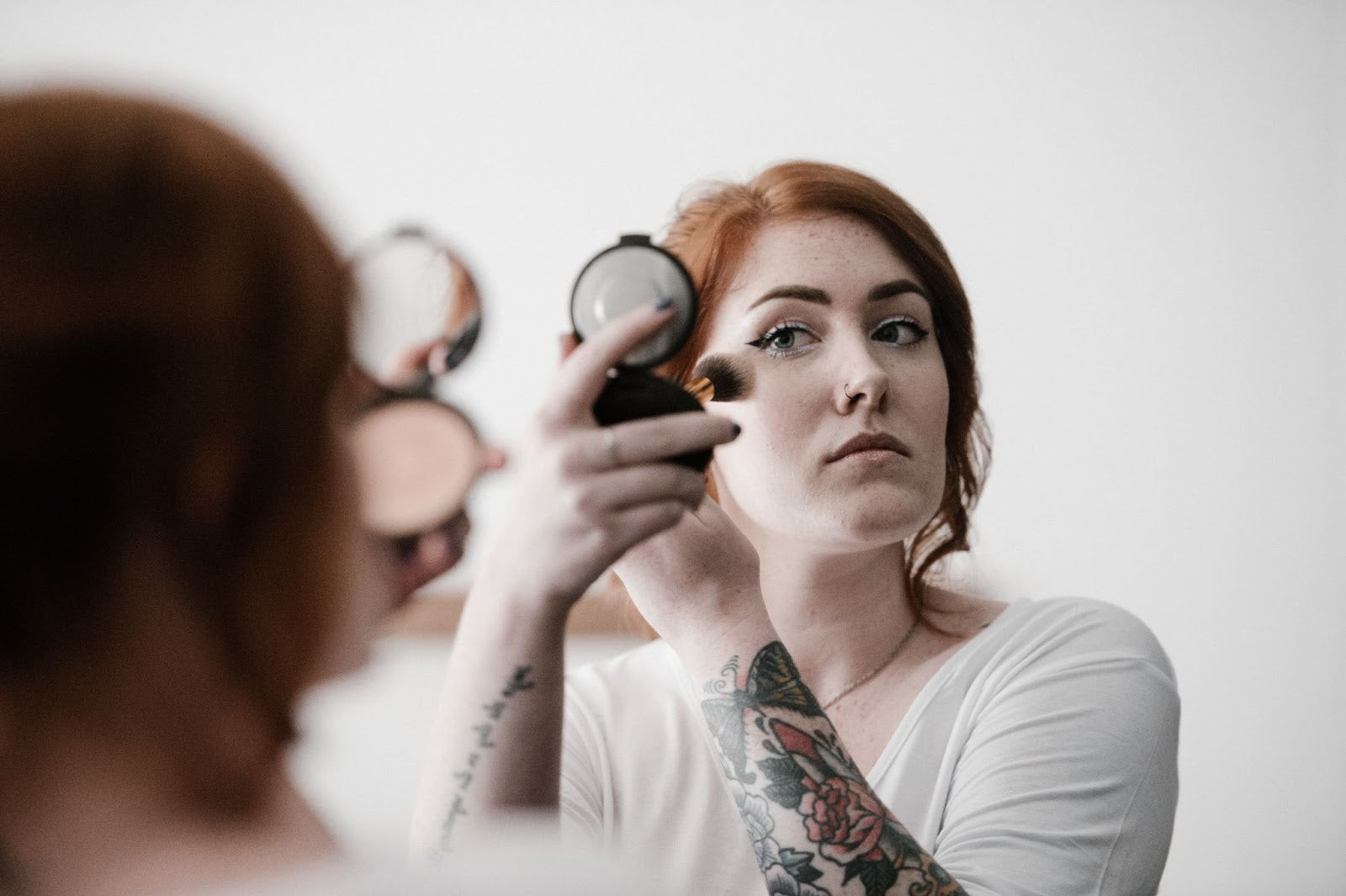Summer Waterproof Makeup: ALL You Need to Know

As you prepare for pool parties, summer weddings, and beach vacations this season, you’ll most likely be reaching for waterproof versions of your favorite products.
However, you probably won’t be thinking too much about what goes into your waterproof mascara that keeps it securely glued to your lashes while you enjoy a mojito at the resort pool.
We don’t blame you.
Before you pack, and pick up another sea-salt resistant foundation, we’ll give you all the info you need to make the best and safest decisions for your summer waterproof makeup selections.
What is Waterproof Makeup?
Waterproof makeup refers to cosmetic products that are formulated to stay in place when exposed to water or other forms of moisture, like sweat.
Waterproof makeup is formulated similarly to your non-waterproof cosmetics, but contains added ingredients to help them adhere to your skin, lash, and brow hair better. Waterproof cosmetics will also include ingredients that form a barrier that keeps moisture from penetrating.
How Does Waterproof Makeup Work?
Most of the time, ingredients are added to waterproof formulas to make them water resistant. The gold standard for waterproof makeup formulas are compounds called fill formers.
Fill formers are ingredients that create a protective seal on the product as it is applied. Fill formers can be made from silicone, acrylates or other polymers. Dimethicone is a popular ingredient for waterproofing a makeup product, as it creates a slick surface that doesn’t allow water penetration.
Dimethicone, however, can be sensitizing to the skin, and is an environmental hazard, making it a less than desirable choice for use.
There are other options for making your makeup more water resistant, including using plant-based waxes like carnauba. These waxes help protect plant leaves from moisture loss in nature, and the same principle applies in reverse when added to makeup products; helping them to resist water intrusion.
Will Waterproof Makeup Clog My Pores?
It is possible that the ingredients in waterproof makeup will clog your pores. Even though the actual waterproof ingredients may be non-comedogenic, the way a waterproof product works is the real issue.
The water-resistant barrier a waterproof cosmetic creates when applied on the skin works like an occlusive. Occlusives are ingredients that form seals on the skin, keeping what’s on the skin in, and the environment out.
Occlusives can be great when they help your skin retain moisture, but in terms of a waterproof makeup product, you’re essentially sealing in every ingredient in the makeup and giving it the opportunity to settle into your pores.
If the ingredients in your makeup contain harsh chemicals and toxins, there’s definite potential for skin irritation, clogged pores, and breakouts.
Is It Okay To Wear Waterproof Makeup Everyday?
Technically, you can wear waterproof makeup daily, but it isn’t good for your skin, lashes, or brows. Additionally, you simply do not need to wear waterproof formulas on a daily basis.
Here’s why you should only wear waterproof makeup as needed.
-
Waterproof makeup is difficult to remove. You’ll almost always need an oil-based cleanser to remove your waterproof makeup formulas.
Trying to remove your waterproof makeup can tempt you to pull on lashes, scrub delicate eye skin, or use abrasive cloths or sponges on your skin.
Scrubbing and using harsh cleansers will almost always lead to skin irritation, dryness, and flakiness.
-
Waterproof mascara can make your lashes brittle. The weight and formula of waterproof mascara keeps it from budging while you’re snorkeling, but it can also make your lashes brittle, especially if you don’t remove it properly.
Brittle, dry lashes can lead to lash breakage and loss.
- Waterproof makeup is occlusive. As previously mentioned, your waterproof makeup formulas create a barrier on your skin, locking makeup ingredients on your skin. Your makeup is then trapped on your skin and able to mix with oil and dirt, potentially clogging your pores and creating breakouts.
-
You don’t need waterproof makeup daily. Even though it’s easy to fall into the habit of wearing a waterproof formula everyday, you don’t need it.
Unless you are going to be in an environment where you will sweat, cry, or be exposed to water continuously, you can rely on your favorite long-lasting, natural formulas.
When To Wear Waterproof Makeup This Summer
You don’t need it when you’re at work (unless your work involves chaperoning a pool party), so just when should you wear your waterproof makeup formulas? We’ve got your complete guide to waterproof makeup usage.
At the Beach
When you’re at the beach you’re faced with two makeup erasing challenges: water and humidity. You’ll also be wearing sunscreen on your skin, which can interfere with your makeup.
Our advice is to bypass the waterproof foundation, apply your favorite sunscreen, and a thin coat of waterproof mascara. Your hat and glasses will likely cover the majority of your face, so the need for waterproof foundation simply isn’t necessary.
In the Pool
Whether you’re at an indoor pool swimming laps or relaxing at a resort, your waterproof makeup will help you look great while keeping cool.
If you’re in a chlorinated pool, continual exposure can break down even the toughest waterproof makeup formulas. Saltwater pools can also wear down the waterproof factor of your makeup.
On Especially Hot Days
Hot, humid summer days can make anyone melt. If you’ve got an outdoor wedding to attend, the heat, humidity, and emotions can leave your makeup looking less than glamorous if you aren’t using waterproof formulas.
Reserve your waterproof arsenal for the hottest days when you know you’ll be outside for more than an hour or two. Most non-waterproof brands are able to withstand a little sweat before running or sliding off your skin.
Waterproof Makeup Essentials This Summer
It’s more than just mascara; waterproof formulas are available in practically every product you normally use.
Eyebrow Gel
Formulated similar to hairspray, waterproof eyebrow gel helps keep your brows tamed and in place while you’re in the water. Waterproof gel can be especially drying, so make sure you are taking steps to hydrate your skin before and after use, or you could end up with flaky skin that gets trapped in your brow hairs.
Mascara
Everyone’s favorite waterproof product, waterproof mascara gives you the ability to retain long, defined lashes even when you’re swimming in a cenote.
Waterproof mascara is notoriously tricky to remove. We suggest using a natural oil, like raw coconut cream, to gently slide the mascara from your lashes without harming them. Our raw coconut cream is wonderful for hydrating your lashes and nourishing them after they’ve had waterproof mascara on for any length of time.
Eyeliner
Waterproof eyeliner can help keep your eyes defined through sweat, tears, and pool water. However, it’s important you apply it properly and be aware that because this product is worn so closely to your eyes, it has the potential to cause irritation.
If you’re already using waterproof mascara, consider bypassing on the eyeliner so you don’t end up exposing your eyes to as many waterproofing compounds.
Foundation and Concealer
Foundations and concealers help you create a more even skin tone, but waterproof formulas are generally very heavy and as previously mentioned, create a barrier on your skin that is impenetrable.
Limit your use of waterproof foundations and concealers and only apply them in areas where they are most needed, like your t-zone or over blemishes.
Lipstick
We all love our favorite shades of red and coral, but water exposure can send your lip color sailing away. Waterproof formulas definitely have staying power, but they are generally matte in finish and can be drying to your lips.
Conclusion
Waterproof makeup is a necessity for summer, but keep in mind that you don’t need to wear it everyday.
Waterproof formulas contain ingredients that can be harsh, irritating, drying, and difficult to remove. Save them for when you really need them and rely on your favorite long-lasting products for everyday use.
Sources:
Protecting Against Water Loss: Analysis of the Barrier Properties of Plant Cuticles|NCBI
Are mascara and eyeliner bad for your eyes? | Ohio State Medical Center




